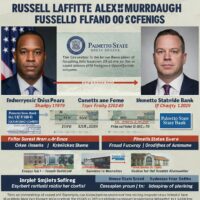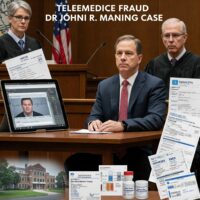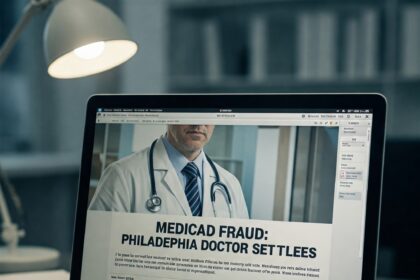Remarks as Delivered
Good morning. I appreciate the opportunity to speak with you today. Many thanks to the International Bar Association for the invitation, and to Anne Walsh for the kind introduction. I look forward hearing from conference participants about some of the challenges and opportunities that cross international boundaries.
Across the globe, the COVID-19 pandemic made clear what those attending this conference know well – that, when it comes to the health and safety of its citizens, no nation is isolated from its neighbors. Pharmaceutical companies and researchers in all corners of the globe fight the same diseases and wrestle with how to best utilize rapidly evolving technologies to improve lives. And the global nature of commerce means that products developed in one part of the world may be manufactured in another part of the world, using materials from yet another part of the world, and then are shipped to and used in, still, other parts of the world.
Today, I would like to share with you how the Consumer Protection Branch of the United States Department of Justice approaches its cases and initiatives — including matters that involve conduct occurring outside the United States — and also highlight a few important new policies that we expect will strengthen the department’s ability to investigate misconduct occurring outside the United States and help to protect consumers around the world.
Some of you might not be familiar with the branch or might not have encountered the Branch in some time – and so I’d like to begin by providing an overview of the Branch, including how the branch approaches its important work of protecting the health and safety of the public.
The Consumer Protection Branch was created over 50 years ago and began, like many consumer protection initiatives across the United States, as an offshoot of antitrust efforts. Over the past half-century, the size and portfolio of the Branch have grown. Today, the branch has over 100 attorneys — supported by paralegals, investigators, document analysts, and data scientists — who collectively tackle a range of misconduct impacting the health, safety, economic security, and identity integrity of members of the public. In furthering this mission, the branch relies on both civil actions — including those that enjoin wrongful behavior and seek monetary penalties — as well as criminal prosecutions.
The branch regularly conducts affirmative enforcement activity related to prescription drugs, medical devices, food safety, dietary supplements, tobacco and nicotine products, and opioids. In all these areas, we employ both civil and criminal tools.
In our work, we closely coordinate with U.S. Attorneys’ Offices across the country, law enforcement agencies like the Federal Bureau of Investigation, the Drug Enforcement Administration (DEA) and the U.S. Postal Inspection Service and our valued agency partners, including the U.S. Food and Drug Administration (FDA). All these agencies help provide the branch with international support and assistance – in recognition of the fact that effective prevention and enforcement requires building and maintaining strong relationships around the world.
With respect to the branch’s work in the life sciences space, our investigations generally fall into two categories. Where the branch and its partners identify a pervasive problem or widespread misconduct related to certain categories of products or industries, we seek to attack that misconduct holistically, targeting a wide range of actors that potentially may be responsible for contributing to a particular problem. Other times, however, we focus on individual bad actors whose conduct may be harming consumers.
The branch’s past and current efforts related to opioids are illustrative. According to the World Health Organization, approximately one-half-million deaths worldwide are attributable to drug use, with more than 70% of those deaths related to opioids. In the United States, overdose deaths have risen sharply over the last decade, and a current estimate places the number of annual overdose deaths at approximately 100,000.
Seeking to combat this global crisis, the branch has endeavored to identify and hold accountable individual and corporate actors at every point in the supply chain, including manufacturers, distributors, and dispensers of opioids. These efforts have included complex civil lawsuits against multinational companies based in the United States — including a landmark ongoing lawsuit brought by the branch against Walmart in connection with dispensing and distribution practices at the company’s pharmacies. And in December 2022, the branch also sued one of the largest drug distributors in the United States, AmerisourceBergen, alleging that the company committed hundreds of thousands of violations of the Controlled Substances Act.
In addition to these civil lawsuits, the branch also has pursued criminal prosecutions, where appropriate. In October 2020, opioid manufacturer Purdue Pharma LP pleaded guilty to conspiracy to defraud the United States and to violate the anti-kickback statute. Specifically, Purdue admitted to impeding the Drug Enforcement Administration by representing that it maintained an effective anti-diversion program when, in fact, Purdue continued to market its opioid products to more than 100 health care providers whom the company had reason to believe were diverting opioids. Purdue also admitted that it reported misleading information to the DEA to boost Purdue’s manufacturing quotas. And Purdue acknowledged making payments to doctors through the company’s doctor speaker program to induce those doctors to write more prescriptions of Purdue’s opioid products.
The branch also has sought to hold accountable companies that attempt to profit from abuse treatments through deception. For example, in July 2019, global consumer goods conglomerate Reckitt Benckiser Group agreed to pay $1.4 billion to resolve its potential criminal and civil liability related to a federal investigation of the marketing of the opioid addiction treatment drug Suboxone. And a subsidiary of the company, Indivior Solutions, also pleaded guilty – admitting that it falsely promoted the film version of Suboxone to physicians, pharmacists, Medicaid administrators, and others across the country as less-divertible and less-abusable and safer around children, families and communities than other buprenorphine drugs, even though such claims had never been established.
More recently, as the nature of the opioid crisis has evolved, the branch and its law enforcement partners also have adapted and are now working to stem the flow of illicit fentanyl. The urgency of disrupting this activity is clear. Last year, the DEA and its partners seized over 50 million fake prescription pills — more than double the amount seized in 2021. This presents a global challenge: essential ingredients for illicit pills often come from different parts of the world, the illicit pills are sometimes manufactured in other parts of the world, and the illicit pills are then trafficked across international borders.
At the branch, we are once again taking a holistic view of this problem – seeking to identify corporate bad actors responsible for aiding the manufacture, distribution, and sale of illicit pills, including global e-commerce sites, social media platforms, and multinational chemical companies. And we are also examining the conduct of companies responsible for supplying narcotics traffickers with the equipment needed to make illicit pills, such as industrial pill presses and counterfeit dyes.
In recognition of the complexity of these matters, in March 2023, Associate Attorney General Vanita Gupta announced the creation of the Opioid Epidemic Civil Litigation Task Force, which formalizes and enhances coordination of the Department’s existing work and will also consider new initiatives. Because of the scope and duration of the crisis, the task force includes U.S. Attorneys’ Offices, the Consumer Protection Branch and the Civil Division’s Commercial Litigation Branch, the Drug Enforcement Administration, and other department components. The task force will steer the department’s civil litigation efforts involving actors alleged to have contributed to the opioid epidemic.
The branch also has remained focused on global enforcement efforts related to dietary supplements, including those marketed to the public as purportedly safe workout or weight loss supplements, but that frequently include ingredients capable of causing serious harm (including liver damage). Our investigations have revealed that ingredients for these products often have been imported into the United States from abroad using deception.
For example, last year the founder and operator of a Florida-based supplement retailer was sentenced to 54 months in prison, following his conviction for lying to consumers by falsely characterizing certain products as safe and legal dietary supplements. In addition, the defendant falsely represented that the unsafe products were made in “FDA approved” registered facilities and in compliance with required regulations, when in fact they were not. He also admitted to directing the fraudulent importation of raw ingredients for products from China, to ignoring injury reports made by consumers, and to failing to notify the FDA of such complaints, even when required by law.
In another matter brought by the branch in Texas, two Chinese nationals involved in importing raw ingredients for dietary supplements were convicted in connection with their participation in a scheme to sell mislabeled dietary supplements. The branch was able to prosecute this matter partially due to information provided by a confidential government informant. The defendants were arrested while attending a dietary supplement trade show in Las Vegas, and one defendant ultimately admitted to making false statements to FDA’s import division regarding a shipment of synthetic stimulants entering the United States.
And in a matter brought by the branch in California, the branch secured criminal charges against an import company and four individuals allegedly responsible for smuggling dietary supplement ingredients into the United States from China for use in consumer products. According to the indictment, the defendants assembled a false shipment designed to fool the FDA into believing that the company had destroyed substances that the FDA had blocked from distribution. But in reality, the company had already shipped the forbidden products, and instead, presented mislabeled substitutes to the FDA for destruction. The indictment further alleges that, in connection with this scheme, the defendants prepared fraudulent documents, including false certificates of analysis and false labels and submitted those fraudulent documents to the FDA when they suspected that an ingredient would be denied entry or would trigger inquiries from the FDA and Customs and Border Protection inspectors. These documents falsely declared the substances to be sucralose, melatonin, or other legal ingredients – and thereby served to conceal the actual contents, which included dangerous designer steroids and stimulants.
As with the branch’s efforts to combat fraud in the dietary supplements space, investigations involving the manufacturing of lifesaving drugs increasingly cross international boundaries. In conducting these investigations, the branch benefits greatly from our strong relationship with FDA, whose dedicated employees strive to protect public health around the world.
One noteworthy recent matter involved an FDA inspection of a manufacturing facility in India that led to the discovery of concerning issues associated with a cancer drug. In March 2021, Indian drug manufacturer Fresenius Kabi Oncology Limited, or FKOL, pleaded guilty to concealing and destroying records prior to an FDA plant inspection and ultimately paid $50 million in fines. FKOL owned and operated a manufacturing plant in Kalyani, West Bengal, India, that manufactured active pharmaceutical ingredients used in various cancer drug products. Prior to an inspection of the Kalyani facility, FKOL plant management directed employees to remove certain records from the premises and delete other records from computers – records that would have revealed that FKOL was manufacturing drug ingredients in contravention of FDA requirements. Kalyani plant employees removed computers, hardcopy documents, and other materials from the premises and deleted spreadsheets that contained evidence of the plant’s violative practices.
Using the Mutual Legal Assistance Treaty process, investigators traveled to India and heard directly from witnesses with firsthand knowledge of the misconduct. The Central Bureau of Investigation in India also provided invaluable assistance to U.S. authorities during the investigation.
As a result of these efforts, FKOL has been ordered to develop and implement a compliance and ethics program designed to prevent, detect, and correct violations of United States law relating to FKOL’s manufacture of cancer drugs intended for terminally-ill patients.
Another recent case involving the branch demonstrates the globally interconnected nature of the medical products industry. In 2021, Avanos, a U.S.-based multinational medical device corporation, entered into a deferred prosecution agreement with the Department of Justice, in which the company agreed to pay $22 million to resolve a criminal charge related to fraudulent misbranding of its MicroCool surgical gowns.
Surgical gowns are evaluated based upon how well they provide a barrier between the health care provider and potential contaminants. Specifically, gowns are rated from one to four, with four being reserved for gowns intended for surgeries and other high-risk medical procedures on patients suspected of having infectious diseases. Level four gowns protect both patients and health care workers from potential blood-borne pathogens. These products must pass certain tests on all critical areas of the gown where direct contact with blood and other fluids are most likely to occur.
The specific products involved in this case were manufactured into finished gowns at a plant in Honduras. As part of that process, the gown sleeves were sealed using machines that were highly variable and unstable – and, as a result, the operators of the machines were unable to consistently ensure that sleeves were properly sealed. And if they were not properly sealed, the sleeves could develop cracks or holes, or even come apart entirely. Unsurprisingly, the gowns repeatedly failed liquid-penetration monitoring testing.
Nevertheless, Avanos employees misrepresented MicroCool surgical gowns as meeting Level four standards, in multiple direct communications with hospital customers. Concerningly, certain customers had sought assurances because they needed to obtain gowns for use in responding to an Ebola virus outbreak — a disease that is carried via bodily fluids and which carries an average fatality rate of 50%. Avanos ultimately sold approximately $9 million worth of misbranded MicroCool surgical gowns to customers located both in the United States and abroad.
Under the terms of the deferred prosecution agreement, Avanos was ordered to pay $22 million, including a victim compensation payment of almost $9 million, a criminal monetary penalty of more than $12.5 million dollars, and a disgorgement payment of almost $700,000. Avanos also agreed to strengthen its compliance program and to abide by specific reporting requirements, which require the company to submit yearly reports to the government regarding the status of Avanos’s enhancements to its compliance program and internal controls, its policies and procedures aimed at deterring and detecting violations of the Food, Drug and Cosmetic Act and U.S. fraud laws, and the status of its remediation efforts.
The Avanos resolution, which was a joint effort between the branch, the Criminal Division’s Fraud Section, the U.S. Attorney’s Office for the Northern District of Texas, and FDA’s Office of Criminal Investigations, specifically noted the factors considered by the government in reaching the resolution. These included the nature and seriousness of the offense conduct and Avanos’s failure to timely and voluntarily self-disclose the misconduct. The government credited the fact that Avanos fully cooperated, conducted an internal investigation, promptly responded to requests from the department, assisted in making foreign-based employees available for interviews, and provided documents located in a foreign jurisdiction.
The failure to timely and voluntarily self-disclose misconduct was an important factor in the Avanos resolution. Since that matter was resolved, the department has made important revisions to the department’s corporate criminal enforcement policies and practices, including to the parameters for the voluntary self-disclosure of misconduct and cooperation credit. In September 2022, Deputy Attorney General Lisa Monaco announced that every department component responsible for prosecuting corporate crime would be required “to review its policies on corporate voluntary self-disclosure, and if the component lacks a formal, written policy to incentivize such self-disclosure, it must draft and publicly share such a policy.”
With the goal of making the benefits of voluntary self-disclosure “clear and predictable,” the Deputy Attorney General directed that all department components implement formalized policies setting forth expectations regarding:
- The timeliness of a voluntary self-disclosure;
- The requirement that the disclosure be accompanied by timely preservation, collection, and production of relevant documents and/or information;
- The types of information and facts that must be provided as part of the disclosure process;
- The benefits a corporation can expect to receive if it meets the standards for voluntary self-disclosure; and
- Aggravating factors that would require a guilty plea even if the corporation voluntarily and timely self-disclosed, such as where the misconduct was deeply pervasive throughout the company.
Consistent with the Deputy Attorney General’s directive, earlier this year the Consumer Protection Branch released its voluntary disclosure policy. Absent aggravating factors, the Branch will not seek a guilty plea if a company has voluntarily self-disclosed to the Branch, fully cooperated, and timely and appropriately remediated the criminal conduct. But disclosure must be accompanied by timely preservation, collection, and production of relevant documents. And a company must disclose all relevant facts known at the time of the disclosure, including facts relating to individuals involved in the misconduct.
As the Deputy Attorney General has noted, department components have not issued “cookie-cutter” policies. Rather, the Consumer Protection Branch carefully considered its unique mission when developing its policy, which encourages voluntary self-disclosure regarding potential violations involving the manufacture, distribution, sale, or marketing of products regulated by, or conduct under the jurisdiction of the FDA, the Consumer Products Safety Commission, the Federal Trade Commission, or the National Highway Transportation Safety Administration, as well as potential misconduct involving failures to report to, or misrepresentations to, those agencies.
The potential aggravating factors also have been carefully calibrated to address the Branch’s focus on health and safety and consumer fraud. Examples of such aggravating factors include:
- Conduct that places consumers at significant risk of death or serious bodily injury; and
- Conduct that intentionally or willfully targets older adults, immigrants, veterans and servicemembers, or other vulnerable victims.
Our policy is available on the Consumer Protection Branch’s webpage and contains an email address to which disclosures can be submitted.
All of these voluntary self-disclosure policies are part of a broader effort to ensure that companies and individuals engaged in misconduct are held accountable as expeditiously as possible.
The branch also is increasing its scrutiny of repeat offenders – in particular, wrongdoing involving the same personnel or management as the current misconduct.
Similarly, facts that indicate broader weakness in a company’s compliance culture or practices are likely to result in a more severe resolution than situations where a company has a track record of compliance and problems are promptly and appropriately addressed. Having a corporate culture that promotes ethical behavior matters, and the Department encourages companies to consider implementing compensation policies, including as to clawbacks, that are structured to incentivize compliant behavior and deter misconduct.
In conclusion, we are hopeful that these new policies will help to advance important investigations involving documents and witnesses located outside the United States and will encourage corporate leaders to invest in effective compliance programs.
And speaking of investments, thank you for investing your time and energy to travel to Washington and engage with your colleagues at this conference. I am grateful to the International Bar Association for providing me with the opportunity to speak with you this morning. Thank you.
Speaker: Deputy Assistant Attorney General Arun G. Rao (Consumer Protection Branch)Component(s): Civil Division
Updated June 1, 2023Original Article














